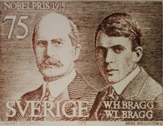



Provenance
1 - Jenkin, John
1 - Jenkin, John
|
Home Provenance Series List Index Search |
| Date Range | 13 March 1938 - |
| Details John Jenkin was born, raised, and educated in Adelaide, South Australia, and graduated B.Sc. with first class honours in physics from the University of Adelaide in 1960. He then completed a Ph.D. in low-energy nuclear physics at the Australian National University in Canberra, and held post-doctoral appointments at the Atomic Energy Research Establishment, Harwell, England, and the University of Minnesota, USA. From very early in his career John had an undeveloped interest in the history of his discipline, physics. In the 1970s, when extravagant claims were being made by current researchers about the field he was working in (the electronic properties of materials determined using photoelectron spectroscopy) he decided to investigate, and found that it had been pioneered sixty years before. He wrote up the story, which was published to some acclaim, and was seduced by the history of science. The names William Bragg and Adelaide University emerged from this research, and his home town and alma mater called him back. Furthermore, upon accepting an appointment as Head of Department, Johnís laboratory-based physics research stalled but it was possible to develop his investigations into history by attending a course or two at Melbourne University and by working at nights and at weekends. John proceeded to write some minor articles on William Braggís sporting activities in Adelaide for an in-house Australian physics magazine, and these were also welcomed. From all this it emerged that the story of William and Lawrence Bragg was one of the most important, untold stories in the history of physics. John determined to try and rectify the omission. Along the way, other related topics emerged, were pursued and were subsequently written up and published. Through this time John Jenkin held positions at La Trobe University in Melbourne, Australia, where he became Reader and Head of the Department of Physics (1968-1992); and then joined the History and Philosophy of Science program in the Faculty of Humanities and Social Sciences (1993-2000). As well as his work on the Braggs, his research at La Trobe has concerned the electronic properties of materials (in Physics) and the history of the physical sciences in Australia (in Humanities). He has published widely in all three areas of his career. John Jenkin retired in 2000 and went on to become an Emeritus Scholar in the Philosophy Program at La Trobe. In 2008, John Jenkinís major work finally appeared: John Jenkin, William and Lawrence Bragg, father and son: the most extraordinary collaboration in science (Oxford, UK: OUP, 2008). It was the culmination of more than 25 years research, and a significant moment in what John describes as a very satisfying and rewarding journey. | |
|
Published by the The University of Melbourne eScholarship Research Centre on AustehcWeb, September 2010
Listed by Melissa Downing and Michael Jones HTML edition Updated 3 August 2020 The template for this finding aid is part of the Heritage Documentation Management System |
[ Top of Page | Home | Series | Provenance | Search | Index ] |